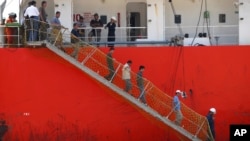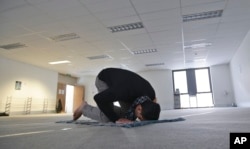Australians believe the government could do more to prevent a terrorist attack on home soil, but also have concerns that Muslims are being singled out for increased surveillance, according to a survey by one of the country’s most respected universities. The findings are contained in the Australian National University’s poll entitled "Attitudes to National Security: Balancing Safety and Privacy."
According to the national poll, most Australians want more action taken to prevent terrorist attacks on home soil, but not at the expense of targeting Muslims.
The Australian National University asked 1,200 people in July for their views on national security and terrorism. More than 70 percent said they were ‘very concerned’ or "somewhat concerned" about the rise of Islamic extremism in Australia.
A similar proportion also believe Australia’s Muslim communities should not be subject to additional surveillance simply because of their religion.
Professor Rory Medcalf is the head of the National Security College at the Australian National University.
“The poll shows this fascinating tension where most Australians recognize and are concerned about the Islamist or extremist nature of a lot of terrorist activity or rhetoric, but most Australians also recognize that it would be counter-productive and really against Australian values, I think, to single out people for excessive monitoring or scrutiny purely because of their Muslim faith. So, I think there is a clear sense of a fairly healthy balance in public attitudes on these issues,” he said.
The release of the survey's findings came as Prime Minister Malcolm Turnbull told parliament in Canberra Monday that Islamist extremists were responsible for heightened concerns among Australians.
But Turnbull added that only a small minority of Muslims had tainted Islam.
According to the 2011 census, just over two percent of Australia’s population, or about 475,000 people, identify as Muslim.
Australia’s national terror threat level is currently set at "probable" in a scale of five categories that give advice about the likelihood of an act of extremism occurring on home soil.





